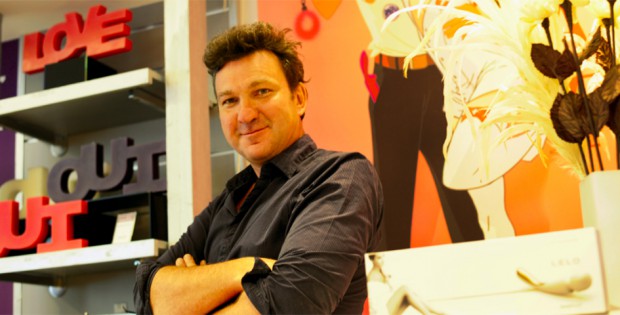
Patrick Pruvot’s take on the developments in the French adult retail trade
The French economy is showing signs of weakness, the unemployment rate is startlingly high … That doesn’t sound like the kind of atmosphere that inspires consumers to freely spend their disposable incomes. But how strong is the effect on the adult retail trade? EAN wanted to know, and Patrick Pruvot proved the perfect interviewee for this topic. He is the manager of Passage du Désir, a French store chain with seven brick and mortar “Lovestores” in big French cities – namely the capital Paris, Marseille, and Lille – and an online shop.
Patrick, how would you describe the status quo of the brick and mortar trade in the French erotic market?
Patrick Pruvot: There are quite a few legal and institutional problems to solve in France before you can open an adult shop … that slows the French brick and mortar market down in its development. But demand is there, and sooner or later, censors will have to give up!
How many erotic stores are there approximately in France? What are the trends in the brick and mortar trade? Which concepts have the biggest chance of succeeding in the long run?
There are about 400 sex shops but only approximately 50 “love stores” in France. That’s less than one love shop per million inhabitants. There is much to do, as demonstrated by the market study we conducted with BVA in early 2015. This study shows that about one out of three French might buy an erotic product in the long run.
There are basically two kinds of click and walk-in love stores in France:
- Small downtown stores (as Passage du Désir) that carry a small and carefully selected assortment (expensive at high-traffic locations)
- Bigger stores in the suburbs (carrying larger assortments, lingerie, and more ‘specialised’ products). Technically, both kind of stores are complementary and have a lot of potential: the downtown shops help the French get used to buying erotic products, and after the first buy, customers may look for a wider range.
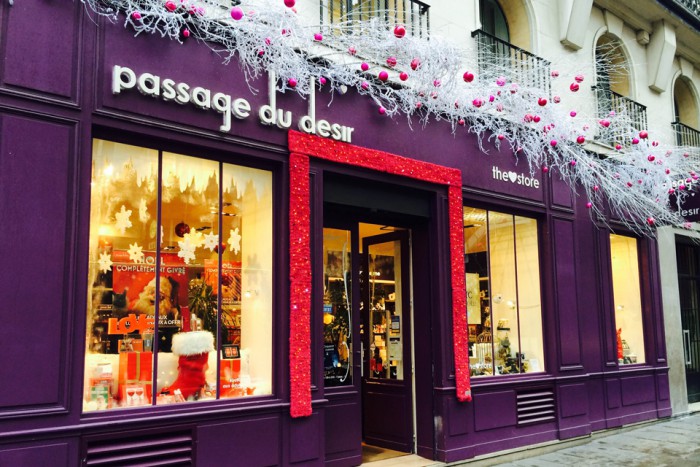
What are the biggest challenges facing the French brick and mortar trade at the moment? Which of these problems are the result of external factors, and which are home-made, so to speak?
Brands often increase the retail prices for the final consumers. A lot of sex toys have reached a price point of over a hundred euros, which is a bit high for first time buyers (most of the French are still). The home-made problems that slow down the development of the market have to do with institutions and with banks that hardly lend money to an adult business…
In several European countries, there are examples of brick and mortar stores struggling while erotic online shops flourish. Is the situation in France similar to that?
I think that Lovehoney would not be so powerful in the UK without Ann Summer opening hundreds of stores before, and Amorelie would not be so big in Germany without the Beate Uhse retail chain … Erotic online shops flourish mainly in countries where mortar shops have paved the way for them … Before they spend money on sexual wellness, people have to get a slight idea of what they buy; they have to touch, feel, smell some of the products they might later buy online. This is at least my opinion and also the reason why Passage du Désir has been developed 100% as click and walk-in from the very beginning.
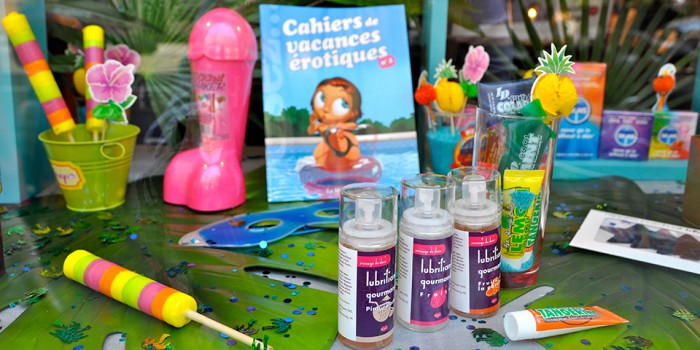
The relationship of e-commerce and brick and mortar stores in the erotic market is often tense. Are these two channels of distribution cannibalising each other in France, or do they coexist peacefully, maybe even benefiting from each other?
I think they are totally complementary as both channels respond to different types of customers. Internet buyers are generally seeking a large selection and low prices that are on the low end for the market. On top of that, in the adult online shops, they can buy such products discreetly (which is a specific need in our market). On the other hand, some buyers want to touch and feel a product before buying it (the best internet website will never give a real clue as to how powerful a vibration is or how tasty an edible massage oil is). But at the end of the day, the barriers between offline and online fade away in most markets… pure online players are now planning to open mortar stores…I don’t see why this trend would not apply to the adult market!
In many European countries, the trade members are breathing easier as the effects of the economic and financial crisis seem to have worn off at last. Has the consumer climate in France recovered in the meantime?
France still has a strong welfare state. That means crises don’t strike people as hard, but they also last longer… So no, we are still in a climate where you have to fight to sell…
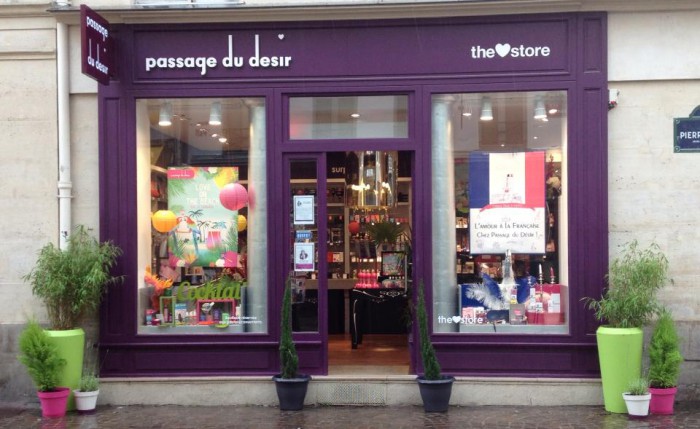
Judging from your experience, is it a misconception that the consumers seek “pleasure for little money“ in times of crisis, or is the erotic trade crisis-proof, profiting from such economic developments?
There is no more difference between the erotic market and any mainstream market. People are just seeking value for money, just like they do in any other market. People are ready to spend 149 or 189 euro when there is a real technological breakthrough in a well-marketed product (Womanizer, We-Vibe…). At the same time, they can buy a cheap cock ring just for the fun of trying something… Just like a woman could buy an expensive skirt and wear an H&M shirt at the same time, the only point being value for money.
The brick and mortar trade is moving away from old-fashioned sex shops with a male target audience, towards modern erotic boutiques catering to women and couples. Would you say that this transformation is already completed in France?
Passage du Désir did it first, and some former sex shops, not all of them, but some, also go in that direction. New suburb stores such as Dorcelstores, Easylove or BodyHouse do it successfully (it is easier to do something new than changing an old style).
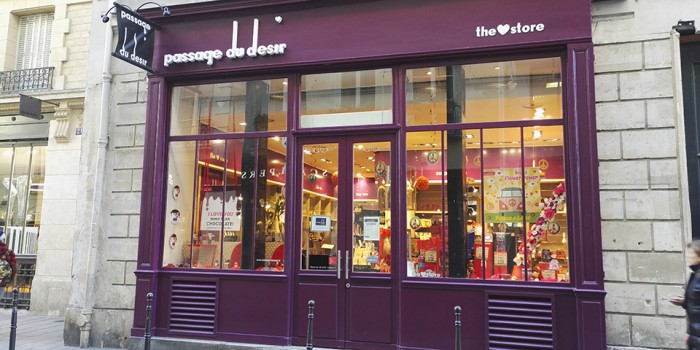
In your opinion, what has to change so erotic products will be accepted by all consumers – i.e. to make erotica mainstream?
Better packaging, better marketing, and… better retailers – which might be the most important issue now, I think.
These changes regarding the acceptance of love toys – how have they affected the shopping habits of the customers of the erotic retail trade?
The brands have done a very good job of improving their marketing. The only problem is that they tend to bill the retailers for these improvements so the prices go up (too high).
Don’t you think that the erotic trade – i.e. specialised stores for adult products – might be left standing in the rain when mainstream outlets – for instance pharmacies, drug stores or supermarkets – start to recognise the sales potential of erotic products and focus more on these items?
Many have attempted to sell sex toys or intimate cosmetics in lingerie stores, drug stores, perfume stores, and supermarkets… at the end of the day most of it did not work out. The reason for this is that the average sales person in these non-specialised stores turn red as a tomato when a customer asks them for a clitoral pleasure cream… A few years ago, Philips conducted a giant worldwide study stating that sexual wellness was potentially worth 40 billion dollars… They launched quite nice lines of sex toys…but tried to sell them in electrics stores, right next to coffee makers, vacuum cleaners, and mixers. It didn’t work out!
Personally, I think the erotic market needs a specific atmosphere and specific sales training to sell products. So the ‘adult’ point of sale has to become mainstream by emphasising values such as ‘sexual wellness’ and ‘couple harmony’ (and forget about the adjective ‘erotic’ which is mistaken for ‘pornography’ in many countries).
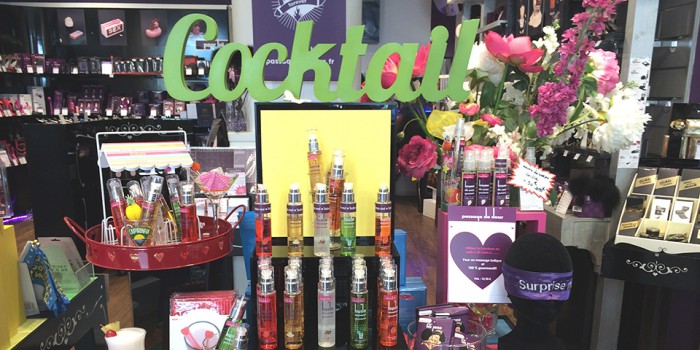
Instead of searching success in other markets, wouldn’t it be more effective if the industry and trade tried to attract new audience groups to the erotic market?
The industry is far too focused on sex toys. Cosmetic brands like Shunga and YesforLov have a much higher potential to win over new audience groups.
What do you think are the decisive factors for French consumers when choosing and buying adult products?
Products have to tell a story. Ideally, a love story.
Are the products one can buy today really as advanced and well thought-out as the producers claim?
There have been quite a few technological breakthroughs among sex toys recently but sometimes, the brands are applying technology for technology’s sake. There are now no new sex toys that don’t include remote control via internet apps. That might be a selling proposition, but I doubt that many consumers use a sex toy app in LA to stimulate their girl in Paris in real life…
There is a heated debate in the adult market about brand products, branding, brand policy, and brand promises. So, what is your opinion? Are there real brands in the erotic market?
If you check Google trends, you will see that there are ten times more searches for a brand like Kärcher than there are for any sexual wellness or sex toys brand, even the leading brands in their market… Do people like to wash their car more than using a sex toy or didn’t the sex toy brands do a good job at becoming well-known brands?… I don t know.





